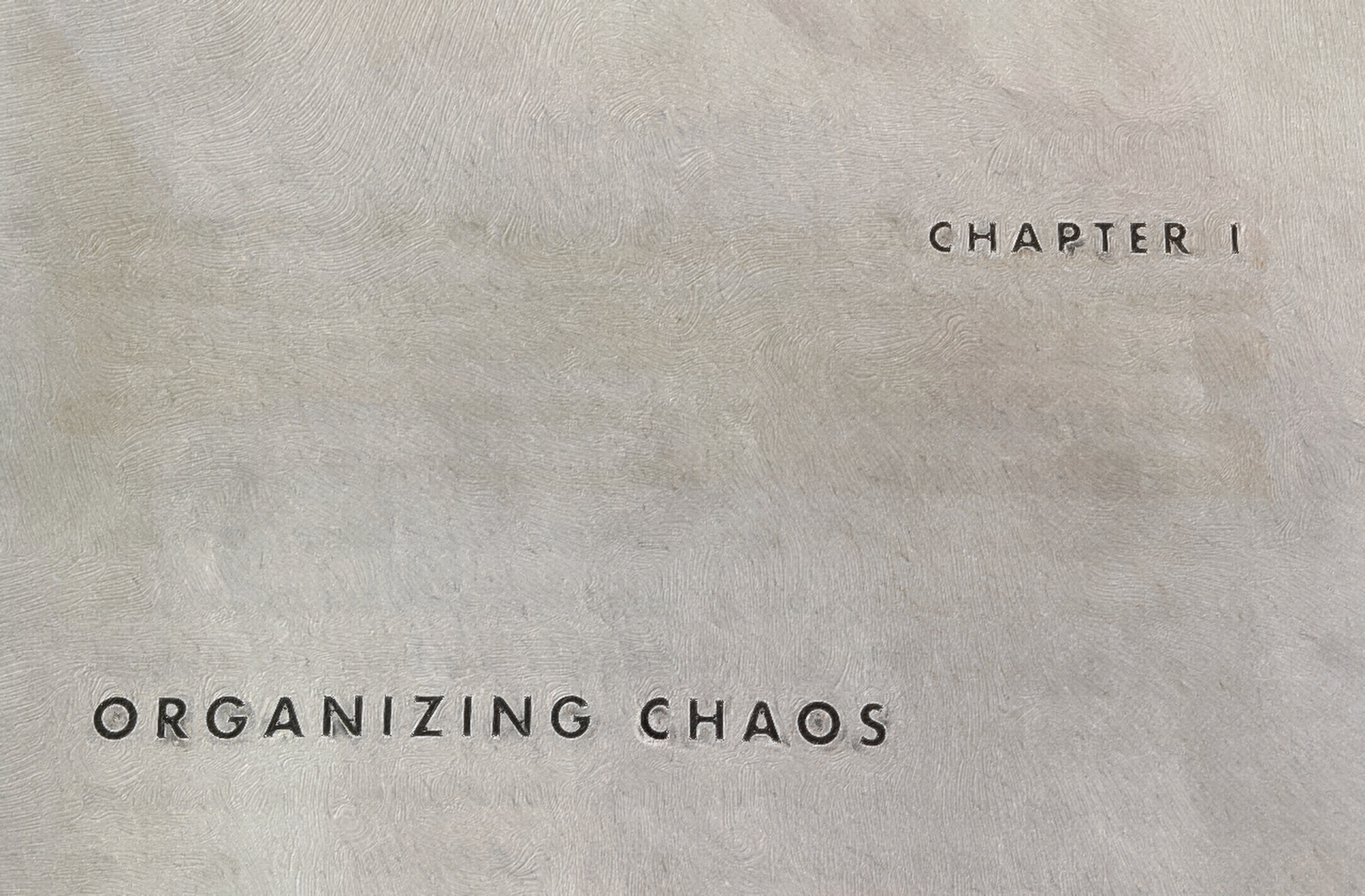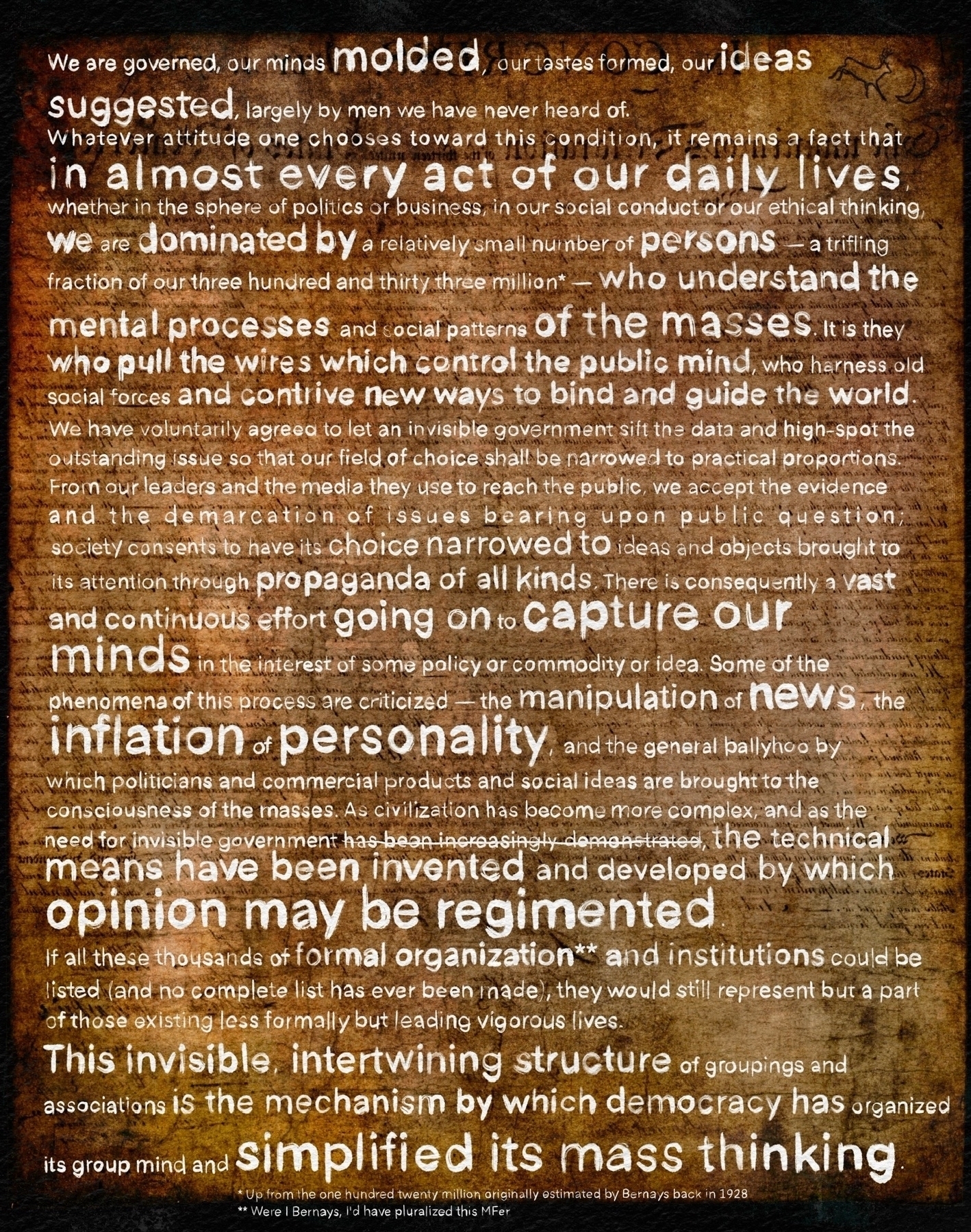MOONDEERS NOTES on Bernays' PROPAGANDA

We are governed, our minds molded our tastes formed, our ideas suggested, largely by men we have never heard of.
Whatever attitude one chooses toward this condition, it remains a fact that in almost every act of our daily lives, whether in the sphere of politics or business, in our social conduct or our ethical thinking, we are dominated by a relatively small number of persons—a trifling fraction of our three hundred and thirty three million*—who understand the mental processes and social patterns of the masses. It is they who pull the wires which control the public mind, who harness old social forces and contrive new ways to bind and guide the world.
We have voluntarily agreed to let an invisible government sift the data and high-spot the
outstanding issue so that our field of choice shall be narrowed to practical proportions. From our leaders and the media they use to reach the public, we accept the evidence
and the demarcation of issues bearing upon public question; society consents to have its choice narrowed to ideas and objects brought to its attention through propaganda of all kinds. There is consequently a vast and continuous effort going on to capture our minds in the interest of some policy or commodity or idea.
Some of the phenomena of this process are criticized—the manipulation of news, the inflation of personality, and the general ballyhoo by which politicians and commercial products and social ideas are brought to the consciousness of the masses.
As civilization has become more complex, and as the need for invisible government has been increasingly demonstrated, the technical means have been invented and developed by which opinion may be regimented.
If all these thousands of formal organizations and institutions could be listed (and no complete list has ever been made), they would still represent but a part of those existing less formally but leading vigorous lives.
This invisible, intertwining structure of groupings and associations is the mechanism by which democracy has organized its group mind and simplified its mass thinking.
* Up from the one hundred twenty million originally estimated by Bernays back in 1928
